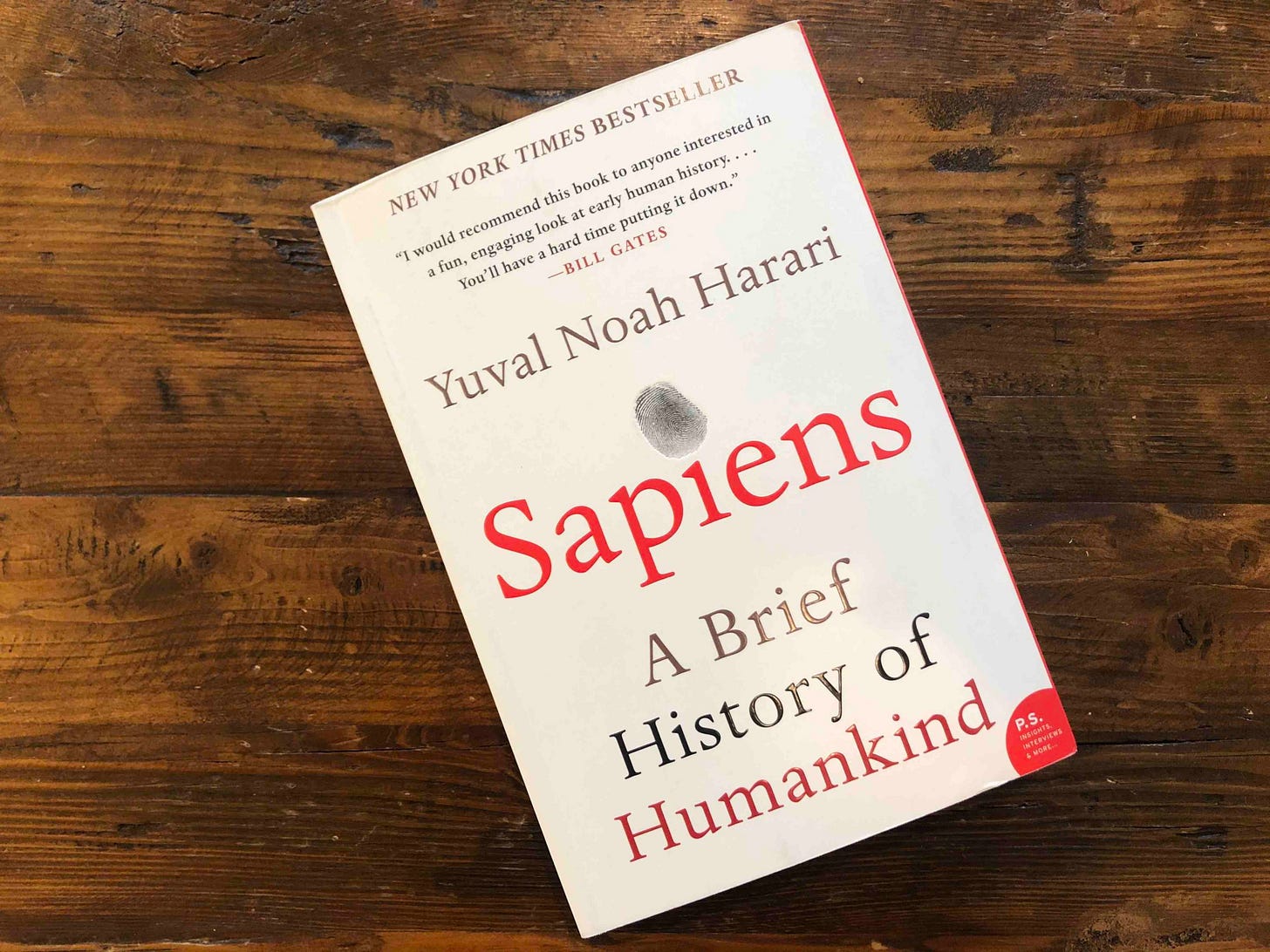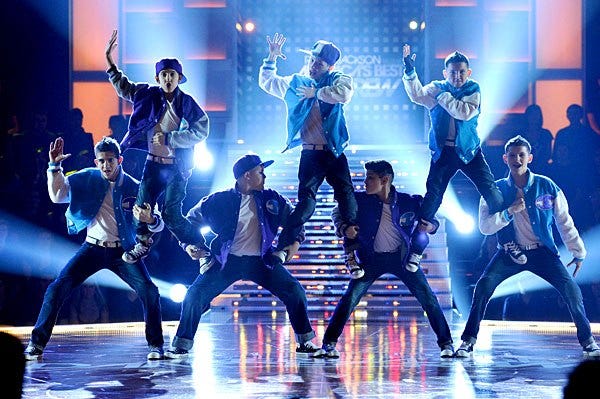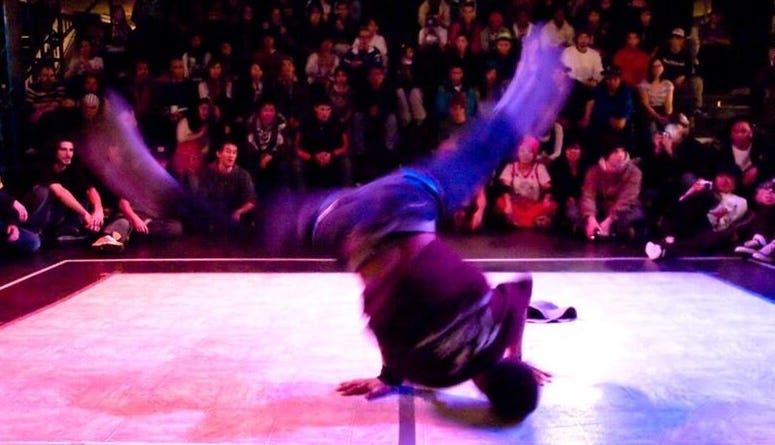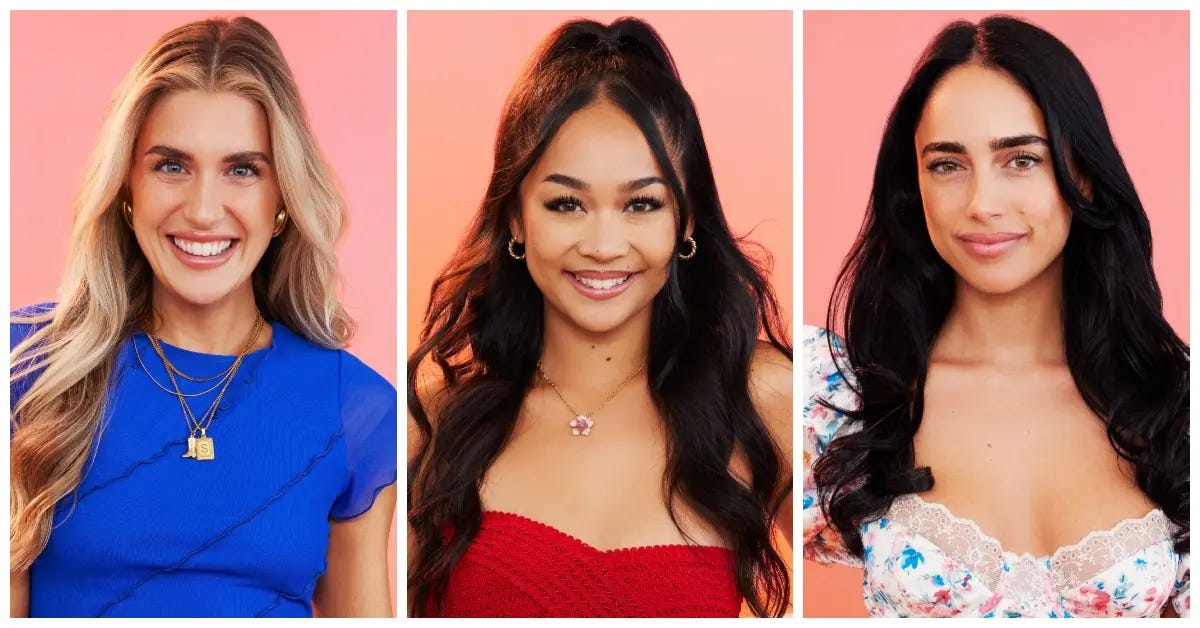In defense of reality television
to lessons learned, live feeds streamed, crushes contained, etc.
My first foray into reality television came from America’s Best Dance Crew, during the heyday of MTV in 2011 (need I remind you, Beyonce’s VMA pregnancy announcement was also this year). Season 6 was underway, and the ICONic Boyz from Englishtown, NJ were all the rage in my corner of pop culture. I was captivated by their sheer athleticism, their intricate routines, and how much fun they seemed to have together.
As a middle-schooler, I’d never really seen kids my age on television before (the 16-year olds on Disney Channel seemed SO much older at the time). This was the first show where I felt my identity reflected on screen, because before AAPI representation in Hollywood, there was Jersey tween representation on MTV for this Jersey tween. I couldn’t tell if I wanted to be them, befriend them, or date them (probably all of the above), and this amalgam of emotions was tormenting yet gave me the will to live.
This experience bonded me with a girl in my grade, elevating our relationship from casual classmates to close confidantes (because nothing says true sisterhood like late nights spent debating “Is it better to be a Mikey girl or a Nick girl?”). We became deeply invested, going to lengths like creating fake email accounts to cast as many votes as possible for our beloved Boyz. When they eventually lost that season, we grieved as if the very fabric of our existence had been destroyed.
My obsession with reality TV sent me into a spiral of awkward experimentation, where I expressed different facets of myself. I went through a period of wanting to dance, prompting my kind, confused mother to enroll me in ballet (a tragedy for this wannabe b-girl), unaware that the turns I was talking about were headspins, not pirouettes.
The land of reality TV was ripe with memes, and I dove headfirst into Twitter threads and YouTube comments, where I could write creatively by contributing to the discourse. Witnessing my favorite reality stars win felt so satisfying, that I finally knew what it was like to be a man rooting for a sports team. Soon, reality TV became my conduit for self-discovery and connecting with others.
Nowadays, I’m a regular indulger in most major shows (the duality of woman means I can watch Deadliest Catch and the Kardashians). Not only are these shows a refreshingly numbing form of escapism, but they also offer windows into worlds that are both familiar and exaggerated. I live for the moments where I recognize Kim's narcissism as my ex’s, Kris’ favoritism of her youngest child as my mom’s, or Kendall’s anxiety as my own, as they serve as microcosms of my reality, only more unhinged.
My reality TV consumption has made me the perfect viewer for The Traitors, hailed as the “the Super Bowl of reality television.” This competition show hosts reality stars in a Scottish castle, where they play a murder mystery game, rich with deception and strategy (forget Chiefs v. 49ers, Phaedra v. John has GOT to be the best showdown that has ever existed).
I’ve watched the contestants openly lie with the fervor of politicians and defend themselves as if facing a jury. As someone who hates confrontation, this sounds like my worst nightmare. But I can’t help but ponder “what would I do?” with each challenge, entertaining the notion that I’d hold my ground and not cower in fear. When the contestants blunder, my ego claims that they’re idiots, while my self-awareness reminds me that I’m not so cunning either. There’s a certain allure to watching others navigate these complex scenarios, swearing I’ll do it better, while knowing deep down I won’t.
The Bachelor is currently airing with the most popularity it has had in a while. This season, a contestant named Maria (aka mother) found herself in hot water with another contestant, Sydney. Sydney accused Maria of bullying, and fans quickly jumped to Maria’s defense, as it appeared that Sydney was lying. Even after Sydney was eliminated, Sydney’s friend Lea continued to spread Sydney’s misinformation on Maria, so much that Lea was accused of being a producer plant.
It’s no secret that people have an affinity for gossip, not only as a means of bonding but also as a form of protection (so we can distinguish between dads and Chads, between housewives and ho- honorable women). Recently, I discussed Yuval Noah Harari’s book, “Sapiens,” with my friend Kunal. In it, Harari highlights Homo sapiens’ unique ability to story-tell and leverage accumulated knowledge. This knowledge doesn’t have to map to a tangible, verifiable source for us to accept its validity. Essentially, this has spurred technological progress and our ascendancy on Earth (for instance, many of us don’t know how our phones work, from a hardware and networking standpoint, but we’ll use them anyway, because everyone else endorses their use. Monkeys would ditch the phone the moment they didn’t understand). Simply put, our ability to take shit and run with it, regardless of it being true or not, or whether we fully understand it, is what sets us apart as a species.

But as much as I adore reality TV and buy into its realness, I acknowledge that editing and producers play a huge part, which can sometimes obscure the full truth. A fun fact about me is that I’ve appeared in a YouTube video before with Kevin Hart (a deep-cut that only the people closest to me have seen). The video involved me pretending to be a passenger of a rideshare service, while my driver, an up-and-coming stand-up comedian, entertained me. All I had to do was to sit pretty and laugh at the jokes. When my friends watched it, they were pretty underwhelmed that my personality was absent from the video. Little did they know, I was instructed by the producers to talk minimally and let the comedian shine. And on the spectrum of reality TV edits, I think I’ll take “boring Uber passenger” over “villain” any day.
Therefore, I always approach drama on reality TV with a healthy amount of skepticism. What if people were merely following instructions, unaware of the final edit they’d receive? In the world of reality TV, more than one truth can exist – in Sydney’s case, the editing could’ve been unfavorable, she genuinely could’ve been annoying as hell, or both (my money’s on both, how ’bout you?).












Massive fan of reality tv here, so of course I had to read your post. I'm convinced that Australian reality tv is the best kind (specification Married at First Sight). I'm still yet to watch the many, many, many seasons of the Bachelor.
I like what you said about edited reality tv, and very cool you appeared in one! I highly recommend the podcast Unreal: A Critical History of Reality TV if you're interested in what goes on behind the scene. (A lot of references to British reality tv that I'm more familiar with but I think you'll like it)